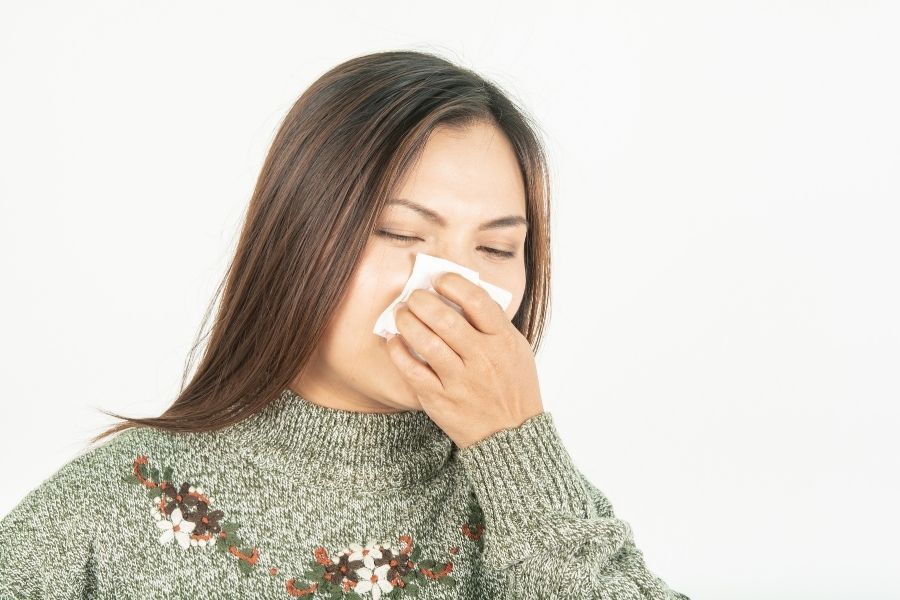
Nasal congestion, also known as “stuffy nose”, is the blockage of air moving in and out of the nose. The nose becomes congested when the blood vessels at the nose becomes inflamed and swells. Nasal congestion may cause discomfort in the ears and in serious cases, it can affect sleep. Nasal congestion is usually caused by an infection by bacteria or virus and you would usually recover in a week. Nasal congestion can also be caused by allergies, other conditions affecting the structure of your nose, or by using nasal decongestants sprays for too long.
What you can do
For infants and young children,
- Put 2-3 drops of saline nose drops into the affected nostril, wait for about 1 minute and remove the mucus.
- To help remove the mucus, you can use an infant nasal bulb (aspirator)
- Remove air from the bulb by squeezing it, then gently place the tip into the nostril
- Release the bulb to allow air to flow back into the bulb. This allows the bulb to pull mucus out of the nose
- Squeeze the mucus onto a tissue to remove it from the bulb
For adults,
- Stop using nasal decongestants if you are currently using it as using it for a long time may cause the condition to worsen. Decongestant nasal sprays and drops should not be used for more than 3 days in a row
- Nasal strips that can be pasted on the nose can be used to widen the nostrils and make breathing easier.
- As lying down can cause the congestion to worsen, you can try sleeping on a raised or elevated pillow while sleeping.
- Drinking more hot tea or water may be useful
When to see a doctor
- If there are other symptoms such as pain or swelling at areas around the forehead, eyes, side of nose or cheeks
- Nasal congestion that lasts for more than 2 weeks
- If you have fever or cough with thick, yellow or green phlegm
How to prevent nasal congestion
- Keep your nose moist by using saline nasal spray or a humidifier
- Drink more fluids to loosen thick mucus and prevent it from blocking your sinuses
Updated in Nov 2018
This article does not take the place of talking to your doctor or pharmacist. People with special health needs such as babies, children below 12 year old, elderly and pregnant ladies should see a doctor instead of self-treatment. Always read the instructions and warnings on the package before taking any medicine.
.png)



















































